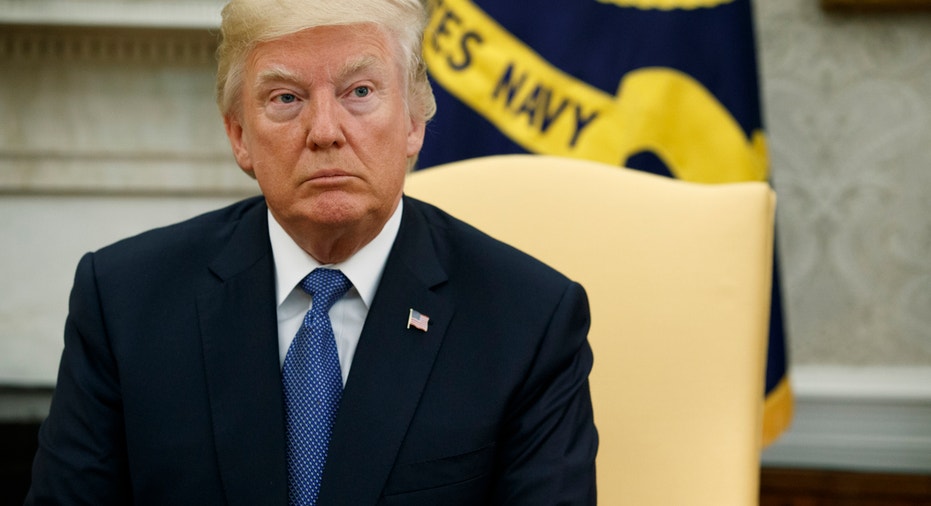Trump's Iran strategy: Business deals on the line?

President Donald Trump is expected to give a major foreign policy speech on Friday, detailing the administration’s strategy for dealing with Iran’s missile program and links to terrorism.
Trump is widely expected to “decertify” the Iranian nuclear deal, he has until Oct. 15 to confirm Iran’s compliance. While most experts expect the bulk of the speech to be aimed at the certification issue, it’s the administration’s proposed next steps that will be most important on Friday, Jim Phillips, Heritage Foundation senior research fellow for Middle Eastern affairs, said.
“The critical question is what comes next after decertification,” Phillips told FOX Business. “Does the administration punt it to Congress, decide to nix the deal or decide to fix the deal?”
Phillips doubts the deal could be fixed “in an acceptable way,” but if the White House chooses to amend the deal rather than nix it, he hopes to hear Trump spell out that pathway on Friday.
Decertification, however, would initiate a formal process under which Congress would have a 60-day window to decide whether to reinstate sanctions against the country. The U.S. lifted sanctions against Iran in 2015 as part of an agreement that the country would scale back its nuclear program.
Reinstating sanctions could potentially impact a variety of business efforts in the region, including a deal struck by Boeing (NYSE:BA) for $8 billion to sell 80 jets to Iran Air. The U.S. plane maker has another agreement to sell 30 airplanes to Iran’s Aseman Airlines.
Phillips said, as of Thursday, he hadn’t heard anything about the administration’s intent to derail the Boeing deal. The company has said in the past it would comply with any measures implemented by the White House.
Since the sanctions were lifted on Tehran, businesses have been cautious about investing. For U.S. companies in particular, additional obstacles took the form of separate sanctions imposed over Iran’s support of terrorism and its human rights abuses.
Energy companies have been among the first to creep back into the region, as the oil-rich country boasts the fourth largest crude reserves in the world. General Electric (NYSE:GE), which used to do business in the country, has said it is looking at “potential business opportunities in Iran,” adding that it would comply with rules laid out by the U.S. government.
British-Dutch multinational company Royal Dutch Shell signed a provisional agreement last December with Iran to explore future energy projects in the region. Though the agreement is nonbinding and the terms have not yet been fully disclosed, Shell said it is working “to further explore areas of potential cooperation” with Tehran.
In July, France’s Total SA signed a $1 billion deal to develop the South Pars gas field, the largest in the world. The 20-year contract will have a production capacity of 400,000 barrels of oil equivalent per day.
It is unclear whether foreign countries would be persuaded to reinstate sanctions if the United States chose to do so.



















